Yunnan: Where flowers rock your taste buds
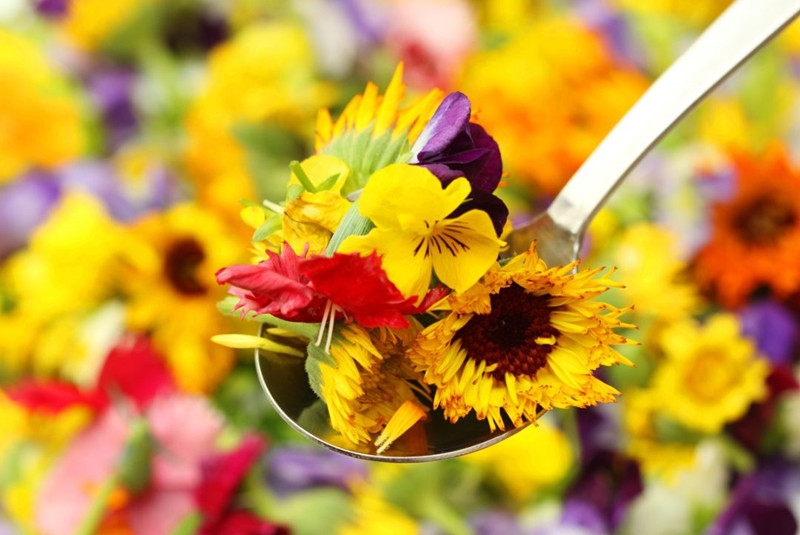
When I studied in the UK a few years ago, I was often asked by my European classmates and friends from other provinces of China: “What do you normally eat in Yunnan? Do people even eat fresh flowers there?”
I smiled every time I heard this question, and then replied as follows: “We never eat ornamental flowers growing in vases and flower pots. But yes, edible flowers are indeed very common on people’s dinner tables in Yunnan!”
In fact, “flower-eating” is never unique to Yunnan province. Historical records have demonstrated that as a long-standing food phenomenon, it can be traced back to thousands of years ago and linked with multiple regions across China.
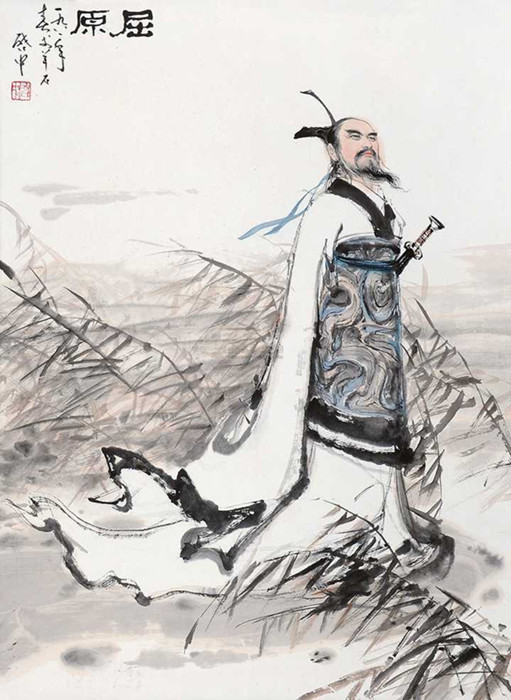
Qu Yuan was a Chinese poet who lived over 2,000 years ago.
Qu Yuan, born in the present-day Hubei province, was a world-renowned poet from China’s Warring States period (476 BC – 211 BC). In his long autobiographical poem known as “Li Sao” (literally meaning “Encountering Sorrow”), he described an ideal life he had been longing for as “drinking the dews that drop from magnolia blossoms in the morning, while tasting fallen chrysanthemum leaves at night”.
What impresses me the most, however, are the vegetarian recipes contained in “Shanjia Qinggong” (which means “Simple Offerings of Rural Households”), an ancient cookbook from the Southern Song Dynasty (1127 AD – 1279 AD). Lin Hong, the author, included several dishes, noodles, soups and desserts made from flowers in this book. Plum blossom wanton soup, lotus seedpod stuffed with fish balls, as well as osmanthus rice cake are just a few examples. These well-presented and plant-based foods explicitly reveal the obsession of Chinese literati with flowers back in time.
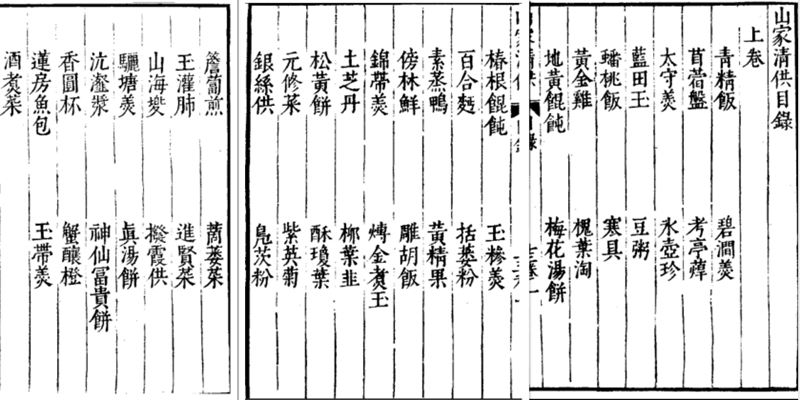
The content table of "Simple Offerings of Rural Households".
Today, cakes and pastries made from either fresh or dried flowers can still be easily found in marketplaces around China. Flower recipes, of course, are also familiar to the dwellers in southern Europe, as pumpkin flower, zucchini flower and artichoke have been integrated into the Mediterranean diet since long ago.
Yet, there are perhaps no other places like Yunnan where the practice of “flower eating” is so widespread and well-known.
This, undoubtedly, has to be attributed to the unique climatic and geographical settings, and incredible ethnic diversity in Yunnan. With a great abundance of flowers and Asia’s largest fresh-cut flower market named Dounan, Yunnan has been hailed as China’s kingdom of flowers and a world garden. In the meantime, no one should forget the pivotal role of indigenous knowledge and wisdom in transforming one after another kinds of flowers into palatable ethnic cuisines.
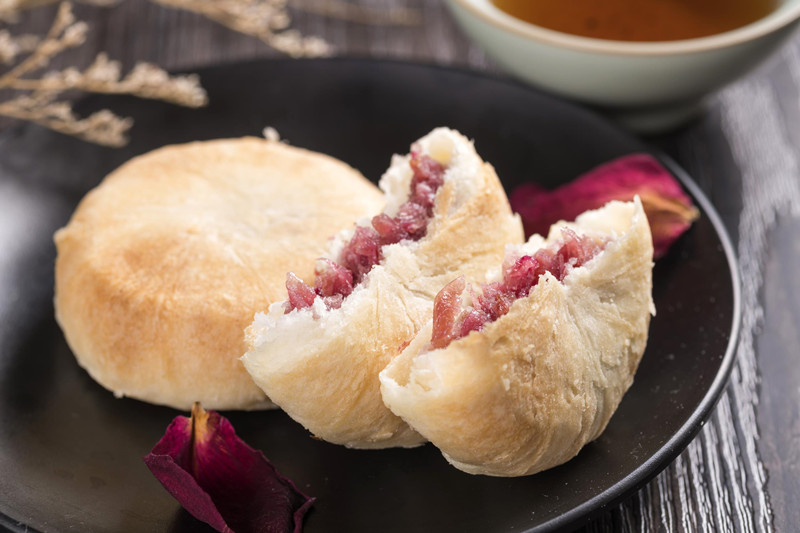
Rose flower cake is a well-known snack of Yunnan.
In Yunnan, edible flowers are something that can hardly be ignored or avoided when one enjoys food in restaurants, streets and people’s homes. Furthermore, nearly every prefecture or city in this province seems to have one or two signature dishes using fresh flowers.
Kunming, Yunnan’s provincial capital, is remembered by many tourists as a city permeated with the tantalizing smell of freshly-baked rose cakes, while Mengzi in the southeast has long been considered the birthplace of the world-renowned cross-bridge rice noodles with chrysanthemum. Grilled Japanese flowers, and fried eggs with broom flowers are commonplace among the Dai people in south and southwest Yunnan.
To be honest, as a native of Yunnan, I sometimes don’t even realize what I eat are flowers, because they are — since my childhood — part of my everyday diet.
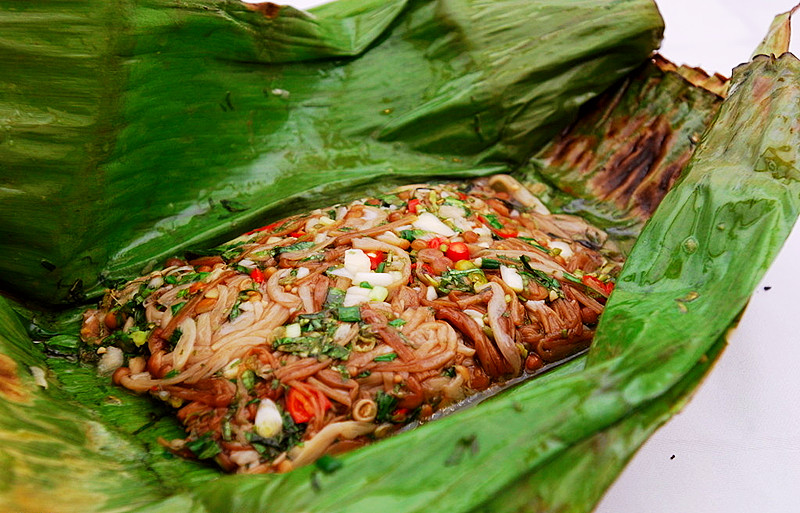
Grilled Japanese flowers from southern Yunnan's Xishuangbanna.
Moreover, my understanding and impression of different seasons have long been associated with the food made from flowers. To me, summer is a scoop of rose petal jam that satisfies my cravings for sweetness. Winter, on the other hand, is best represented by a bowl of hot and spicy taro flowers steamed together with sliced eggplants.
Rose petal jam (“meigui tang” in pinyin) is a traditional delicacy of Bai people who live in Dali, one of Yunnan’s major tourist hubs. Freshly picked rose petals need to be soaked in Chinese white wine with brown sugar, and later stored in a sterilized and sealed glass jar for no less than 15 days. I particularly like eating rose petal jam with a nice bowl of ice porridge. When I travel to central Yunnan’s Yuxi, I never forget to visit a small restaurant in the downtown, where this snack tastes just sublime.
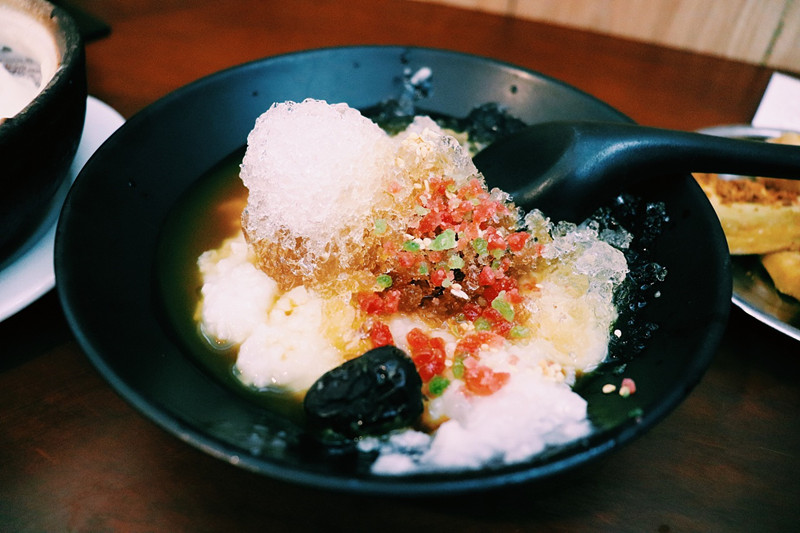
Yuxi is famous for its ice porridge with rose petal jam.
Ice porridge with rose petal jam is an ultimate summer indulgence, while another dish called steamed taro flowers with eggplants evokes my best memory about family. Every year when winter comes, I always see my grandma bringing bundles of purple and green taro flowers back home from a market nearby. Grandma was born in southwest China’s Chongqing in the 1930s. Having lived in Kunming for decades, she simply takes flowers as no different from vegetables such as cabbage and broccoli.
When I send taro flowers into my mouth with chopsticks, I’m clear to myself that there’s no way to take edible flowers away from the dinner tables of Yunnan people, and this more or less “bizarre” food tradition will surely be passed on to the future generations.
Writing and trans-editing by Wang Jingzhong (Yunnan Daily); photographs from the Internet








